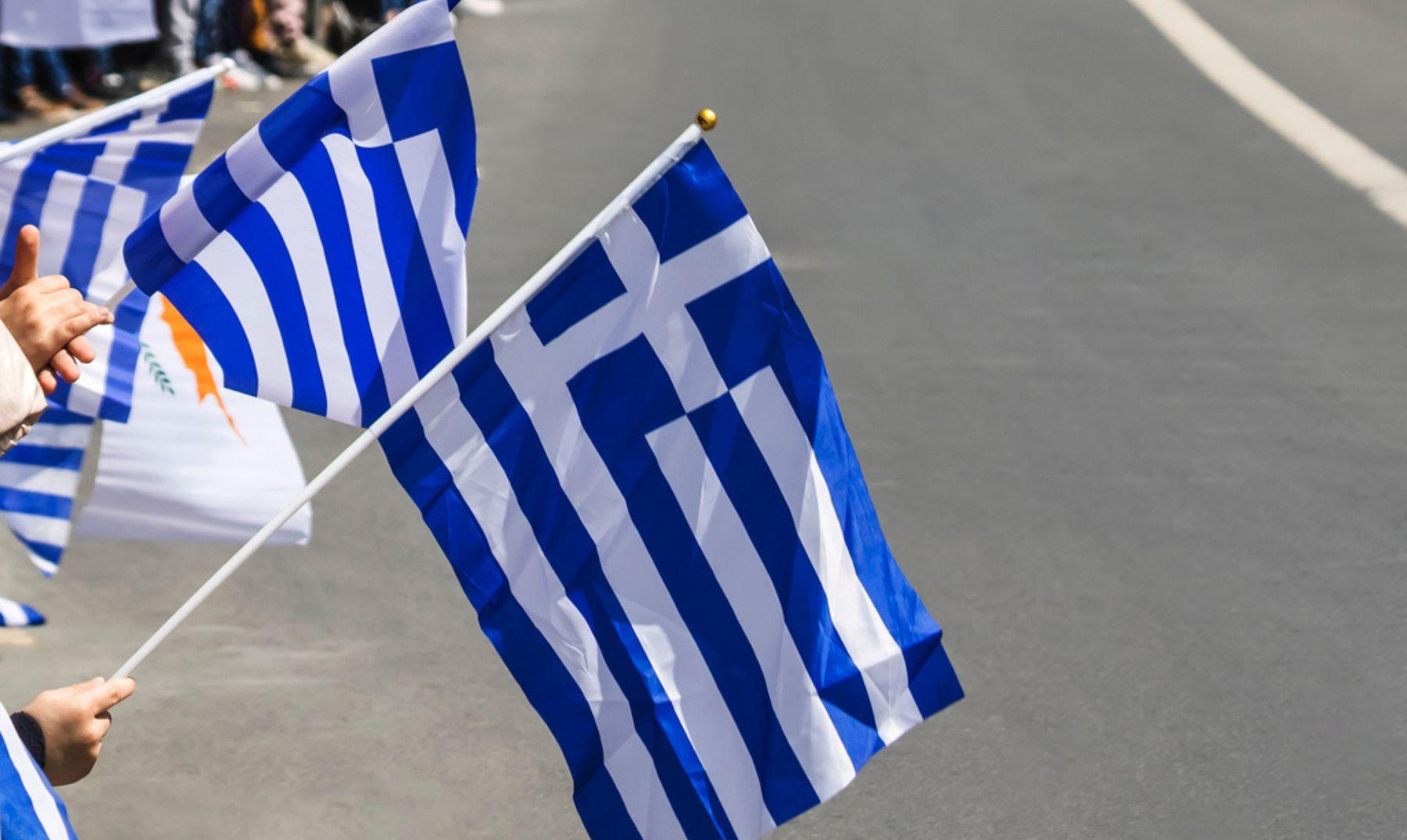Every year on October 28, Cyprus and Greece celebrate Ohi Day — a holiday of national pride, courage, and unity. This date commemorates the events of 1940, when Greek Prime Minister Ioannis Metaxas refused to accept an ultimatum from Fascist Italy. On the night of October 28, the Italian ambassador, Emanuele Grazzi, demanded that he allow Mussolini’s troops to pass through Greece and occupy key positions. Metaxas’s reply was short but significant: “Οχι” (“No”). That same morning, at 5:30 a.m., Italian forces attacked Greek border posts, marking the start of the Greco-Italian War, a notable chapter of World War II.
This “no” was not just a refusal; it became a symbol of national dignity and the readiness to defend freedom at any cost.
Interesting fact: According to one version, Metaxas’s original response was not the word “Ohi,” but rather “Alors, c’est la guerre” (“So, it’s war”).
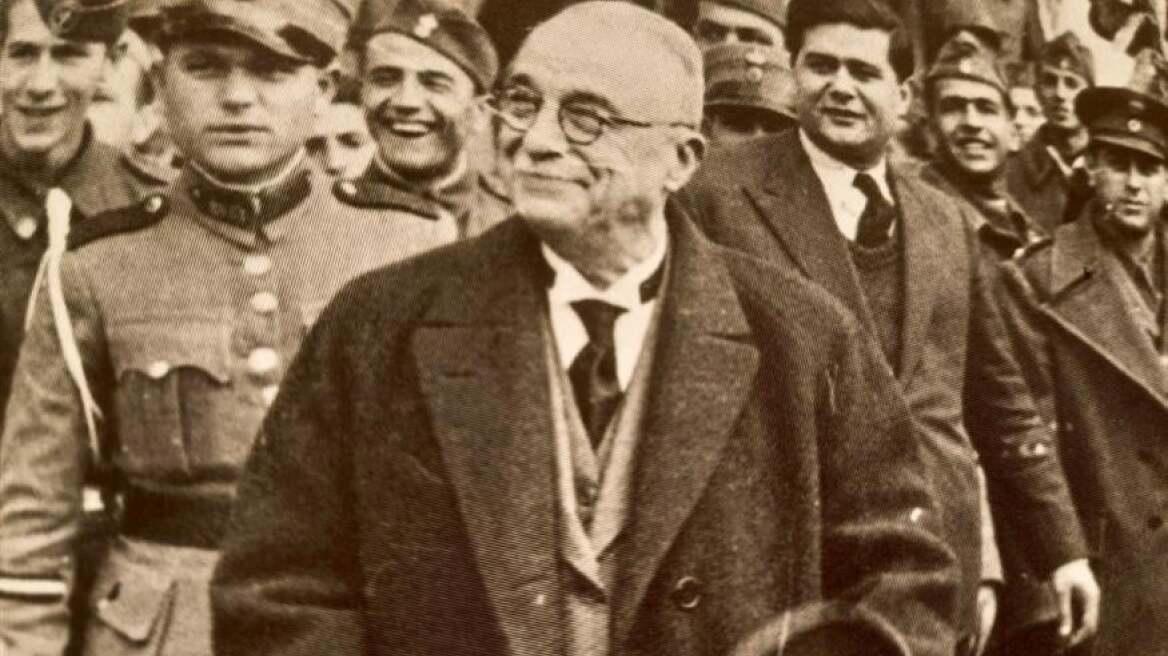
Cyprus and Greece: an alliance tested by time
Although Cyprus was under British rule in 1940, its people did not stand aside. Many Cypriots, instead of leisurely sipping frappe, began enlisting en masse in the British army, seeing the attack on Greece as a personal affront. They wanted to fight against fascism.
Historians estimate that around 30,000 Cypriots went to the front, with roughly 6,000 fighting shoulder to shoulder with the Greeks. These events left a profound mark on the island’s history. For Cypriots, Ohi Day is not a foreign holiday but part of their own national identity — a symbol of shared roots, culture, and commitment to the ideals of freedom.
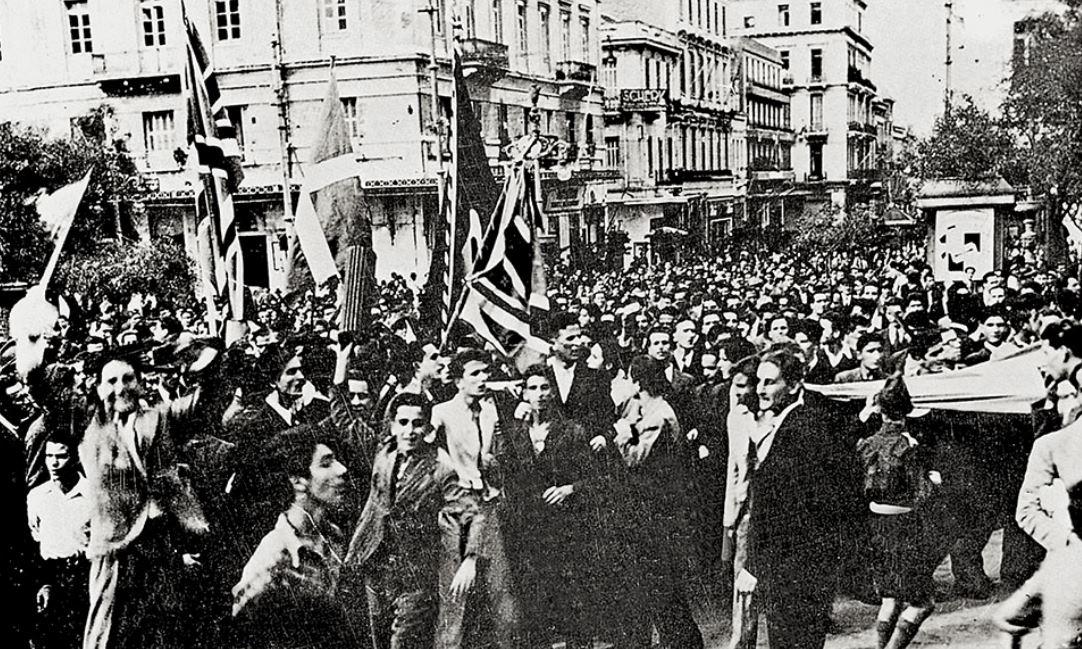
From resistance to victory
To understand the power of this word, we need to return to 1940. World War II was only gaining momentum, and the Balkans had become a battleground for influence. Germany and Italy were already dividing Europe, and Mussolini believed Greece would be an easy conquest. He was mistaken.
Greek soldiers, armed more with courage than with technology, pushed the Italian forces back into Albania. Five months of fierce fighting proved that even a small country could challenge a giant — and win.
Of course, Germany soon intervened, invading through Bulgaria in April 1941, and Athens fell. The occupation lasted until 1944 and brought Greece tremendous suffering. But the Greek resistance became legendary. The entire country united — from mountain villages to the islands. People didn’t just fight; they resisted, sabotaged, and aided the Allies. The Greek resistance became one of the strongest in Europe, inspiring other nations and proving that even a small country could defy global evil. And it all started with a single word.
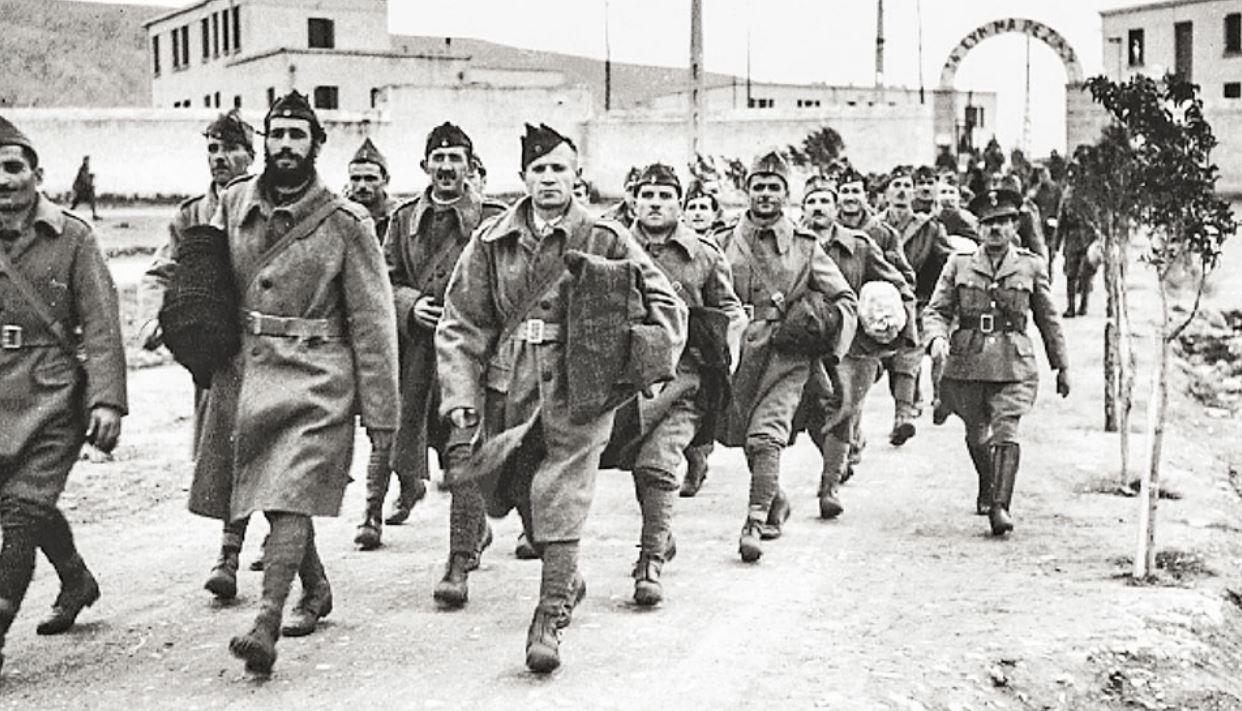
A symbol of freedom and national dignity
“Ohi” became a symbol not only for Greece but for all peoples who fought against tyranny. Its meaning goes far beyond that specific historical event. It embodies courage, loyalty to ideals, and the belief that even one person can change the course of history. Today, the word echoes through the squares and streets of Cyprus and Greece as a reminder: freedom is never given freely. It must be defended — with resolve and dignity, just as the Greeks did in October 1940.
When, after the war, Italian ambassador Emanuele Grazzi wrote his memoirs, he recalled that day with respect and amazement. He admitted that Metaxas — an elderly man — appeared completely calm, fully aware that his response would lead the country into war.
“I watched his eyes,” Grazzi wrote, “and realized that before me was a man ready to condemn his people to suffering, but not to shame.”
Indeed, Greece paid a high price: occupation, famine, and destruction. But it was during that time that the legend of the unbreakable spirit was born. Greeks still joke that it is in their DNA: whenever someone demands submission, the answer will always be “Ohi” — whether it’s a boss, an examiner, or… a mother-in-law.
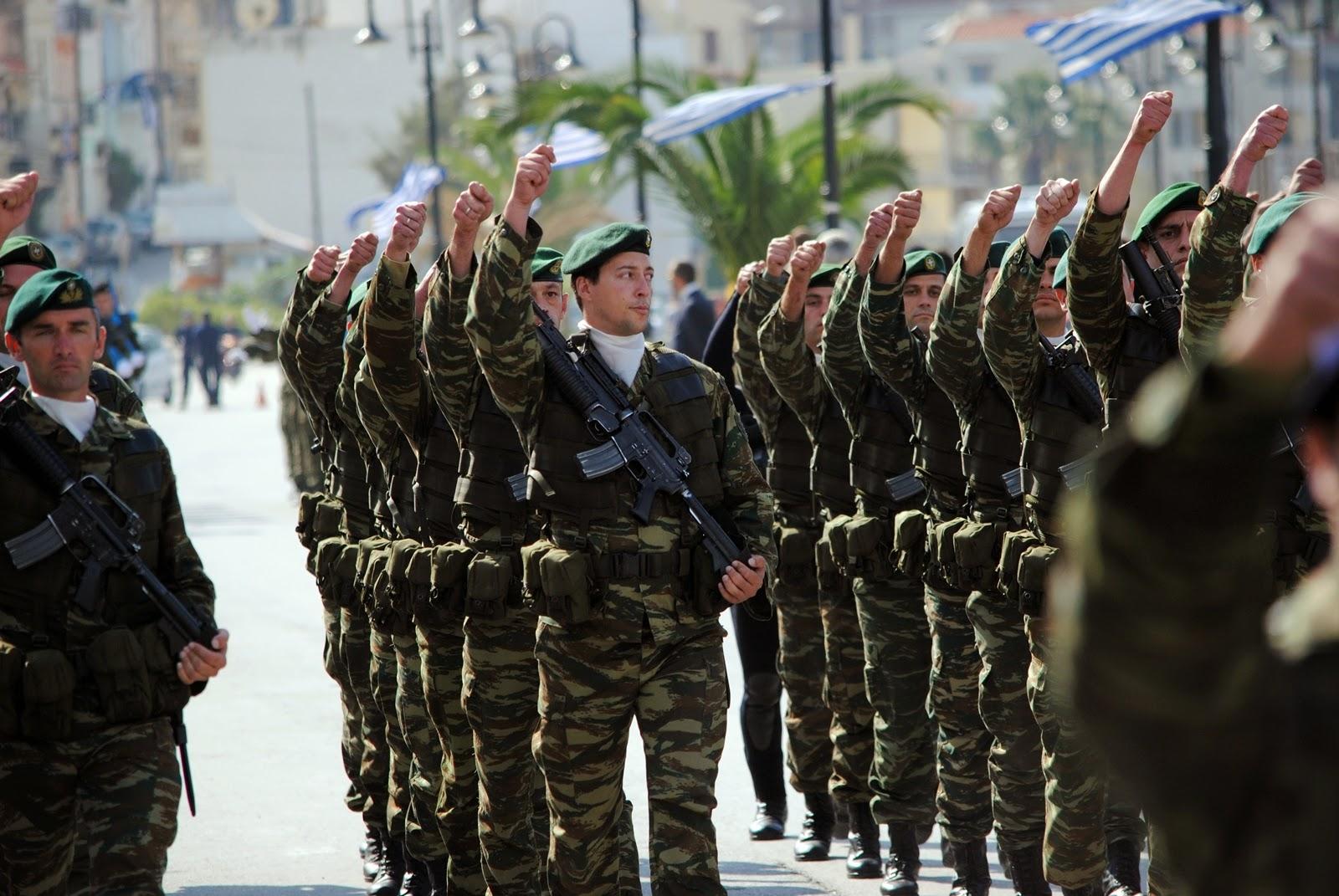
How Ohi Day is Celebrated in Cyprus
October 28 is an official public holiday and one of the most beloved celebrations on the island. In the morning, solemn church services take place, followed by parades featuring schoolchildren, students, veterans, and representatives of the army and police.
In Nicosia, Limassol, and Larnaca, streets are decorated with Greek and Cypriot flags, patriotic songs fill the air, and children march proudly in columns. Being a flag bearer in a school parade is a huge honor, reserved for the best students. After the parades, families gather for a festive lunch. Traditional dishes such as moussaka, dolma, souvlaki, and, of course, a glass of Cypriot wine “Commandaria” are served. Who said patriotism can’t be celebrated deliciously? By evening, main squares host concerts and orchestra performances, with fireworks lighting up the sky.
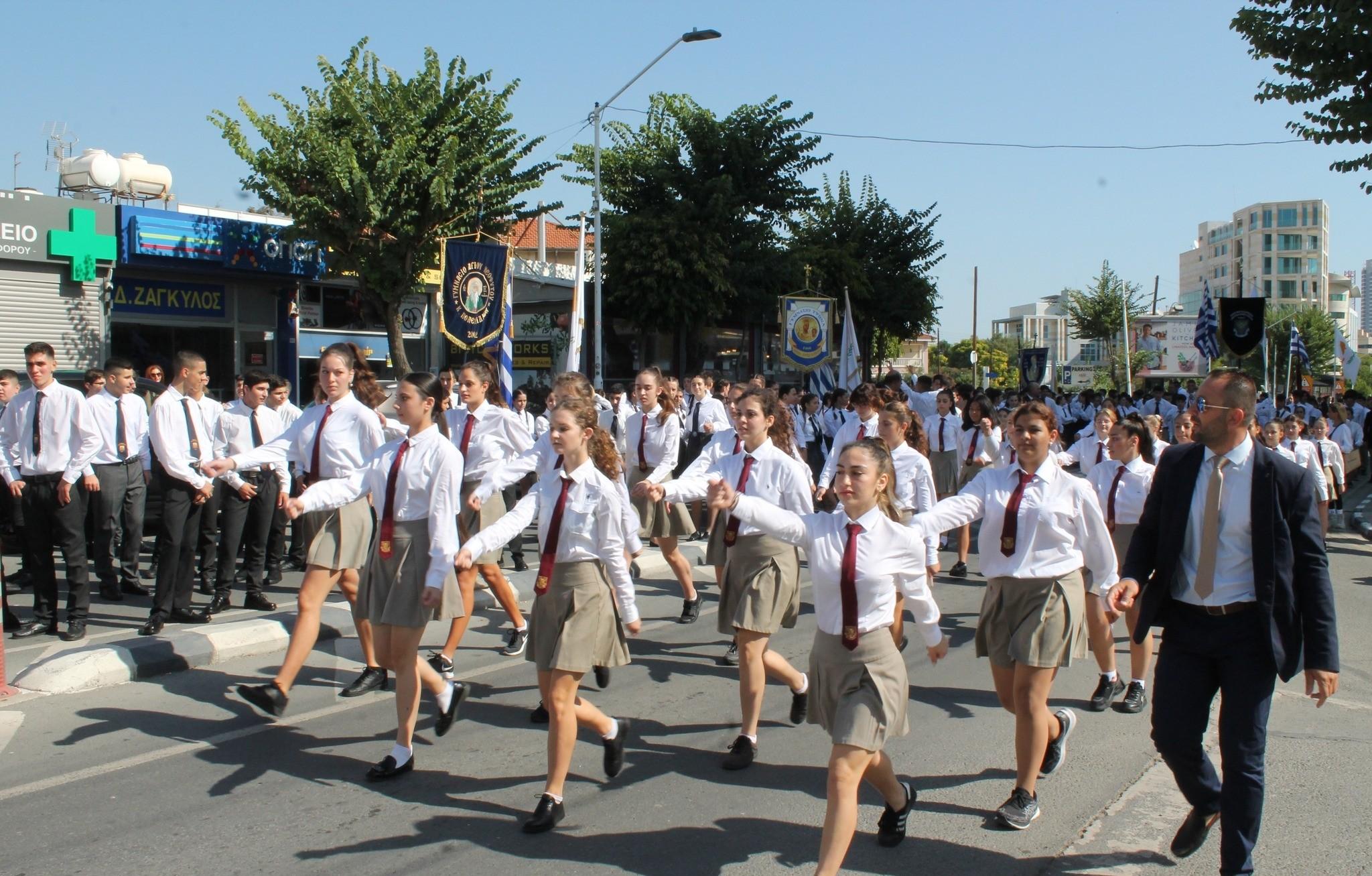
The Contemporary Significance of Ohi Day
Today, as Europe faces new political, economic, and humanitarian challenges, the memory of Ohi Day takes on special meaning. It is not just a remembrance of the past but a reminder of the importance of defending freedom, democracy, and human dignity. Ohi Day is celebrated not only in Greece and Cyprus. Diasporas in Australia, the USA, Canada, the UK, Germany, and even South Africa take to the streets every year to honor heroes and say “no” to any form of injustice.
For Cyprus, this day is especially meaningful. It reminds people that freedom is not a gift but a daily struggle. That independence requires not only strength but also loyalty to principles. And that even when the opponent seems stronger, one can always say: “Ohi!” — and defend honor.
More than 85 years have passed, yet the word “Ohi” still rings proudly. It lives on in school songs, in the hearts of veterans, and in the smiles of those marching under the Cypriot sun. Ohi Day is not just a historical date. It is a day when Cyprus and Greece remember that to be free is to be brave. It is a celebration filled with tears of pride, laughter, songs, and, of course, the enduring Greek concept of filotimo — love of life, people, and homeland.
So, if you hear a Cypriot say “Ohi” to a waiter in a café, don’t be surprised. They may simply be continuing the tradition — reminding the world that sometimes a single “no” can change history.
Read also:
- Troodos Observatory — a new unique attraction in Cyprus
- Wintering in Cyprus — how to prepare and the monthly costs
- Cyprus for remote workers — pros and cons, places and cafés for comfortable work
- How to get a driver’s license in Cyprus — a complete guide
- A rainy day in Cyprus? The best activities and attractions

